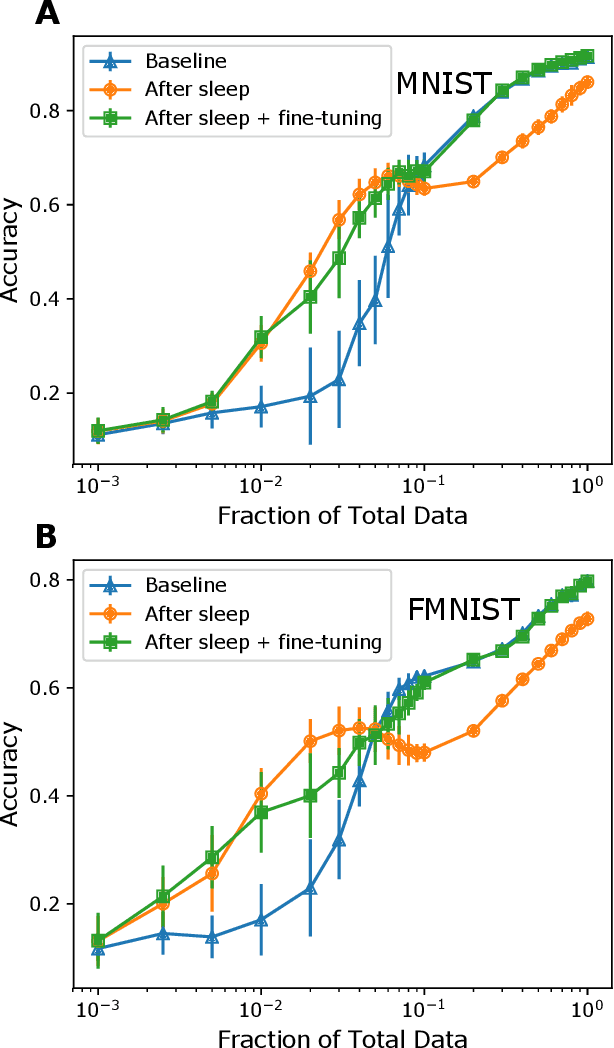Pahan Dewasurendra
Unsupervised Replay Strategies for Continual Learning with Limited Data
Oct 21, 2024Abstract:Artificial neural networks (ANNs) show limited performance with scarce or imbalanced training data and face challenges with continuous learning, such as forgetting previously learned data after new tasks training. In contrast, the human brain can learn continuously and from just a few examples. This research explores the impact of 'sleep', an unsupervised phase incorporating stochastic activation with local Hebbian learning rules, on ANNs trained incrementally with limited and imbalanced datasets, specifically MNIST and Fashion MNIST. We discovered that introducing a sleep phase significantly enhanced accuracy in models trained with limited data. When a few tasks were trained sequentially, sleep replay not only rescued previously learned information that had been catastrophically forgetting following new task training but often enhanced performance in prior tasks, especially those trained with limited data. This study highlights the multifaceted role of sleep replay in augmenting learning efficiency and facilitating continual learning in ANNs.
Sleep-Like Unsupervised Replay Improves Performance when Data are Limited or Unbalanced
Feb 12, 2024
Abstract:The performance of artificial neural networks (ANNs) degrades when training data are limited or imbalanced. In contrast, the human brain can learn quickly from just a few examples. Here, we investigated the role of sleep in improving the performance of ANNs trained with limited data on the MNIST and Fashion MNIST datasets. Sleep was implemented as an unsupervised phase with local Hebbian type learning rules. We found a significant boost in accuracy after the sleep phase for models trained with limited data in the range of 0.5-10% of total MNIST or Fashion MNIST datasets. When more than 10% of the total data was used, sleep alone had a slight negative impact on performance, but this was remedied by fine-tuning on the original data. This study sheds light on a potential synaptic weight dynamics strategy employed by the brain during sleep to enhance memory performance when training data are limited or imbalanced.
 Add to Chrome
Add to Chrome Add to Firefox
Add to Firefox Add to Edge
Add to Edge